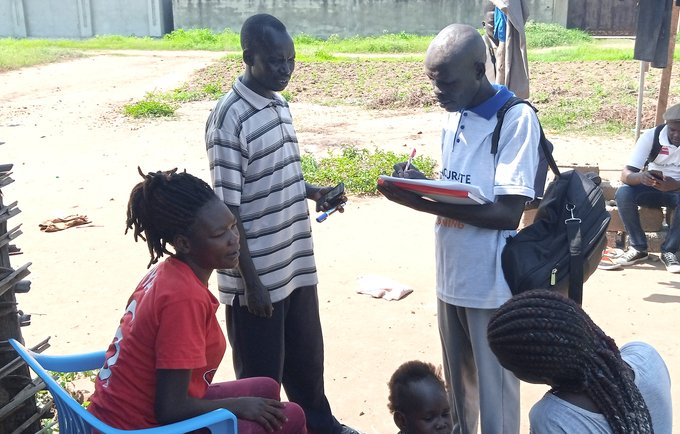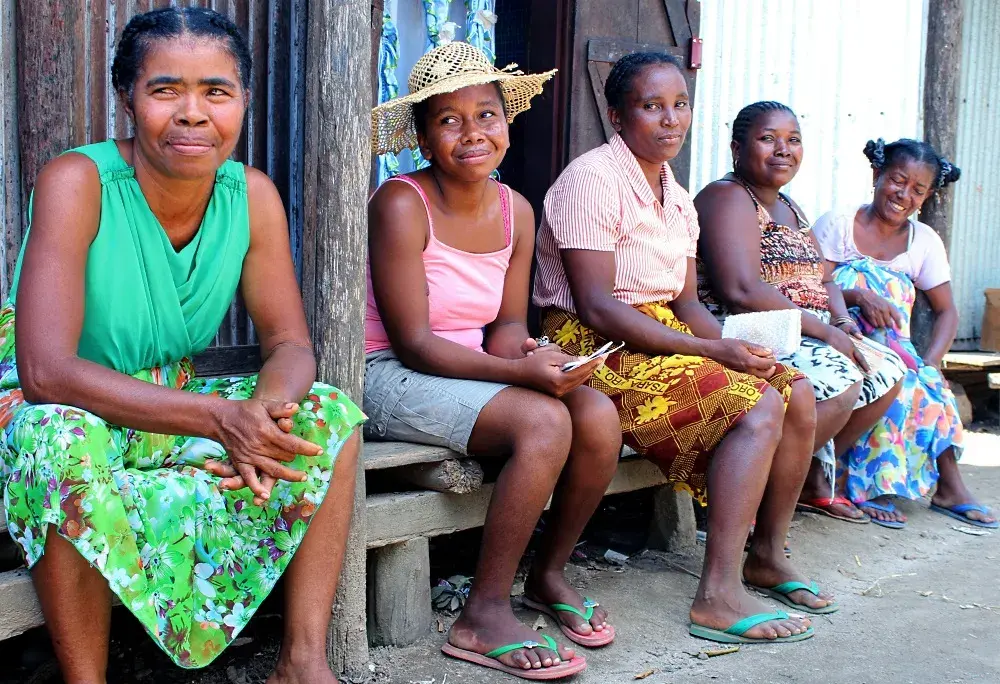NYAKURON, Juba, South Sudan—On a hot summer’s day, sweat trickled down Malish John Clement’s face. Despite the discomfort he was determined to complete his task of visiting as many households as he could for the nationwide Population Estimation Survey (PES), ahead of the first-ever census to be carried out by the world’s newest nation.
The softly spoken enumerator was excited to be part of the milestone population survey, to be conducted 13 years after the 2008 Population and Housing Census that was carried out when the nation still formed part of Sudan. He is hopeful that the enumeration will achieve its goal of enabling South Sudan’s development.
Accurate data will have an impact on the improvement of social services and infrastructure, and public utilities like water supply.

In Juba Arabic, Mr. Clement explained to members of a household why accurate data on the population is important for development planning: “It will have an impact on the improvement of social services and infrastructure such as hospitals, schools and community health centres, as well as public utilities like water supply.”
Once the survey is completed, South Sudan will have more reliable population data that can be used by government, development partners, non-governmental organizations and the private sector to plan more responsive development assistance and programming.
“Some houses we visited were empty,” Mr. Clement said as he clutched to his chest a clipboard that held the survey questionnaires. “Some households took a long time before answering our knocks at the gate, but I exercise patience. I am happy that the majority of the people are receptive.”
Local leaders' support critical
An awareness campaign run in the local media plus the support and involvement of local leaders helped inform residents of the forthcoming PES. Among the communities, this built confidence and trust in the survey process and the enumerators.
Once of them was James Amudi, community leader for Nyakuron West, who agreed to accompany Mr. Clement on his house-to-house visits. “The successful completion of the exercise will help local leaders to develop plans to deliver social services that will be more responsive to the needs of the community,” he explained.
The successful completion of the exercise will help local leaders to develop plans to deliver social services that will be more responsive to the needs of the community.
The PES was led by the National Bureau of Statistics in collaboration with UNFPA and the Geo-Referenced Infrastructure and Demographic Data for Development (GRID3) project, which is funded by the Bill & Melinda Gates Foundation and UKAid. UNFPA provided funding of $1 million as well as technical support to the government.
“Data that will be generated from the Population Estimation Survey will be used for policy formulation, planning and monitoring for development programmes and humanitarian response, delivery of social services, governance reforms, and very importantly, in preparation for a national election,” said Isaac Chol, National Bureau of Statistics Chairperson.
Data analysis is currently ongoing and the initial results are expected in October or November. The survey was carried out in May and June, and was supported by Irish Aid, WFP, UNDP, UNAIDS, UN Women, UNHCR, IOM, FAO, UNICEF and UNMISS.




